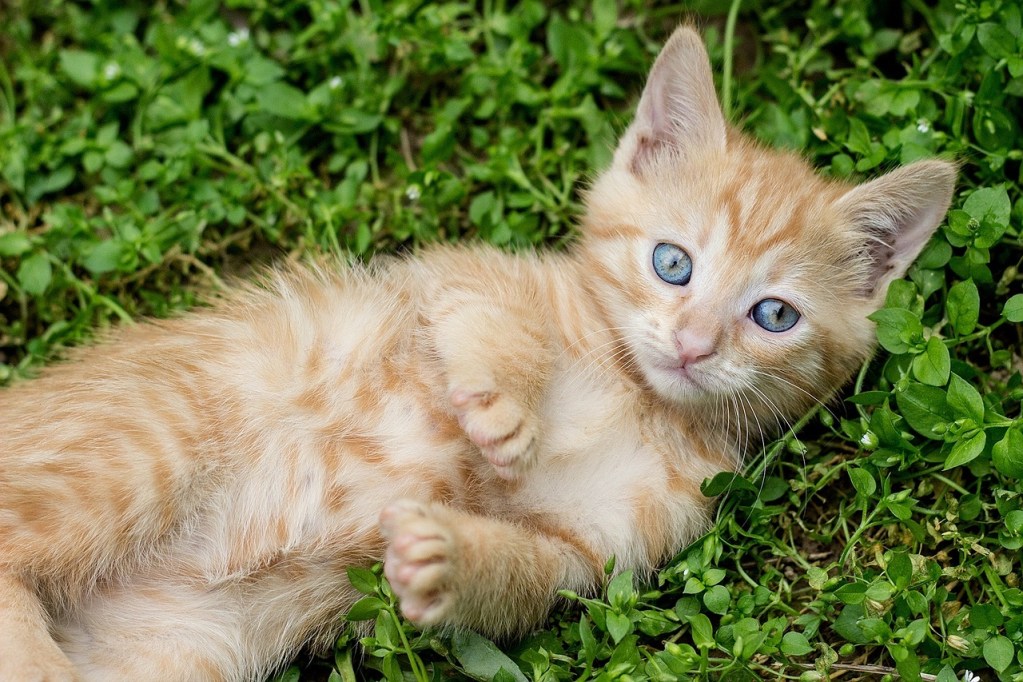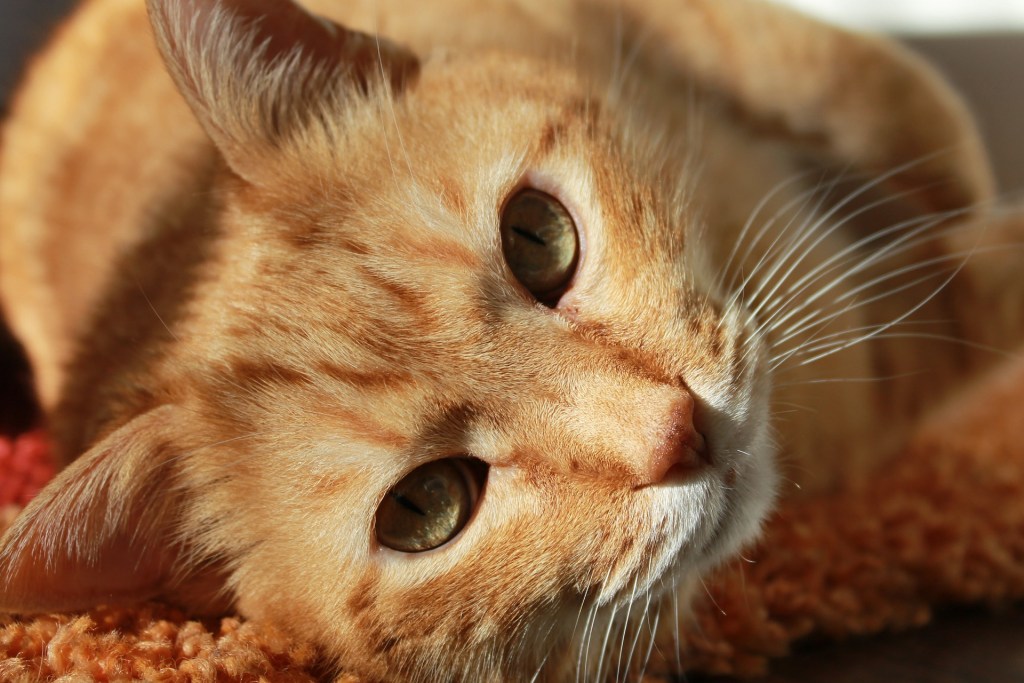Bringing home a cat is a super exciting experience, but that new member of your family will also need a name. Coming up with the perfect name for your cat can take some time, so don’t be afraid to get to know your new pet for a while before you decide on a name that truly fits him or her. Brainstorming a list of names can help with the process though, which is why we’ve included some great orange kitten names to help you get started. Each of these names has a tie-in to your cat’s color, and you might decide that one of them is just right.

What should I name my orange cat?
Butterscotch
Pumpkin
Maple
Apricot
Honey
Penny
Marmalade
Tangerine
Nutmeg
Dorito
Tigger
Caramel
Rusty
Hobbes
Nacho
Sandy
Autumn
Cheddar
Ginger
Amber
How to choose the right name for your cat
There are a few important things to keep in mind when choosing a name for your cat. First, pick a name that doesn’t sound similar to the names of other people or pets in the home. This can help to avoid confusion for your new feline companion.
It’s a good idea to pick a name that’s easy to say. While you might prefer a more complicated, multi-syllable, “formal” name for your cat, try to think of a nickname that you and your family members can easily say. Try to choose a name that’s simple to remember, especially if you have young kids in the house who will need to learn the cat’s name, too.
Once you’ve decided on the right name for your cat, use it around him frequently to help him get used to it. Make sure that you also share the name with others who need to know it. Call your veterinarian and have them update their records with his new name. It’s’ also important to call your cat’s microchip company, if he has one, so they can update their records as well.

Additional tips for welcoming a cat into your home
Finding the perfect name for your new fur baby is just one part of welcoming him into your home. As your cat starts to get settled in, you might be tempted to spend lots of time with him and try to pet or interact with him, but that can actually contribute to your cat’s stress. Often, a cat will most appreciate being left alone in a quiet room during his first few days home. Explain this to your kids and ask the whole family to give him some space.
When your cat is feeling a little more confident, you can start spending some time in the room with him or letting him out to explore the rest of the house. Focus on his body language to understand how he’s feeling. A crouched body position, flicking tail, and wide eyes can all indicate that your cat is on high alert and isn’t yet feeling comfortable in his surroundings. Don’t try to approach him during these times — give him the distance he needs and keep other pets away from him so he can gradually build up his confidence.
As your cat begins to explore more, make sure that he has little spots of his own throughout the home. These spaces might include a window seat, a cat tree, or another perch that lets him watch the events in your home from a secure area. Remember that cats like to get up high and look down on others, so try to create places where your new cat can do that safely.
In conclusion
There are many ways to help your recent addition settle in with your family, and that starts with finding him the perfect name. Discovering that name might take some time, but it’s worth being patient and persistent until the right name comes to you. Try to involve your friends and family in the process, and encourage everyone to share their name ideas. If you make a big list of all of those names, you’ll quickly have plenty of options to choose from, and you can soon find the name that suits your orange cat perfectly. Congratulations on the addition of your new furry family member!


